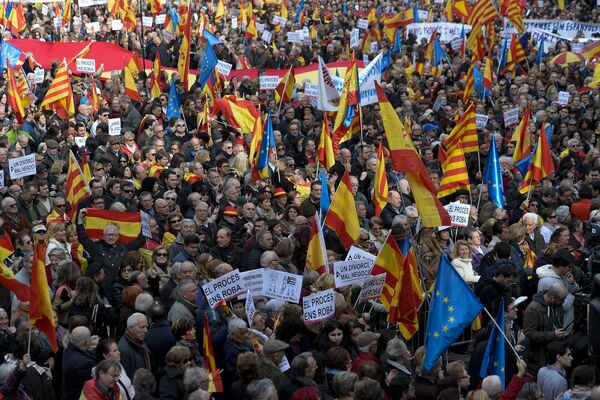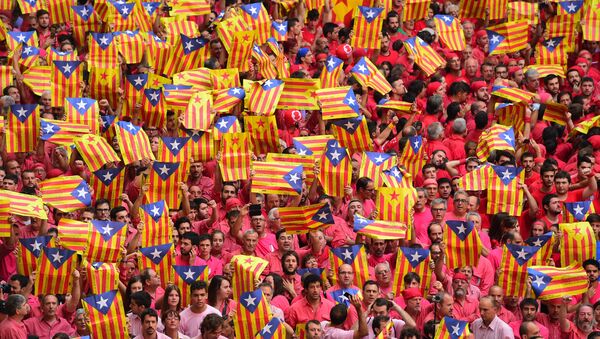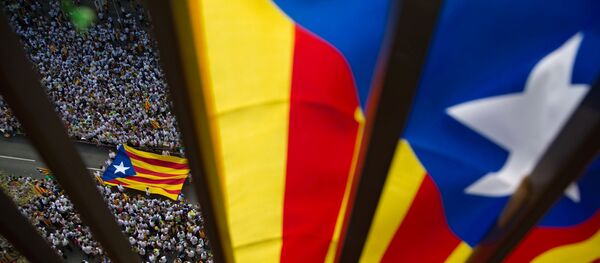Upon taking office in January 2016, Catalan President Carles Puigdemont vowed the region would hold an independence referendum within 18 months. While the Spanish Constitutional Court suspended a resolution on the move passed by the Catalan parliament in July, Puigdemont said the region would ignore the decision, and in September almost one million Catalans took to the streets to demand independence.
Catalan separatists launch new independence campaign — Expatica Spain https://t.co/R1udoUtPD0
— Spain report (@Spainreport) January 16, 2017
Catalan separatists have tried unsuccessfully to win approval from the Spanish central government for an independence vote for decades, but the years following the financial crisis have seen a significant proliferation of pro-independence views.
Elections in September 2015 saw separatists earn 48 percent of the vote in Catalonia, although shares varied significantly across the region.

For instance, in some Barcelona suburbs, separatists' share of the vote was closer to 30 percent. These constituencies are the jumping off point for the Assemblea Nacional Catalana (ANC) campaign. ANC president Jordi Sanchez is reported to have said the referendum will be won via "information and reflection, not feelings."
In response, Enric Millo, the central government's delegate in Catalan, told wire services that the separatist discourse was "not coherent," and offered an overly romantic vision of an independent Catalan future.
He cited a poll conducted by his University, which found 45 percent of Catalans simply wanted a greater degree of independence — full independence was craved by a mere 37 percent.
Despite Botella's claims, public polling on the issue has demonstrably swung between support and opposition, with each position typically enjoying a lead of one to two percent — in December 2016, 45.3 percent were in favor of independence, compared to 46.8 percent against. Undecided voters have typically stood at around six percent. Nonetheless, the Spanish government has repeatedly insisted that any plebiscite would need to be Spain-wide.
The independence push comes at a time when secession movements are gaining in strength across Europe. In the UK, support is growing for a second Scottish independence referendum in the wake of the June 23 'Brexit' referendum.
If mays speech goes as expected tomorrow sturgeon has no alternative but to call for another independence referendum & this time she'll win.
— Séan (@CelticSean81) January 16, 2017
In December 2016, the SNP published a list of demands for Brexit negotiations, which included a pledge to hold a second referendum if they aren't met.
On June 23, 62 percent of Scottish electors voted to remain, a 24-point margin, with every single local authority area returning a Remain vote — a far higher number than voted to remain part of the UK in 2014.



